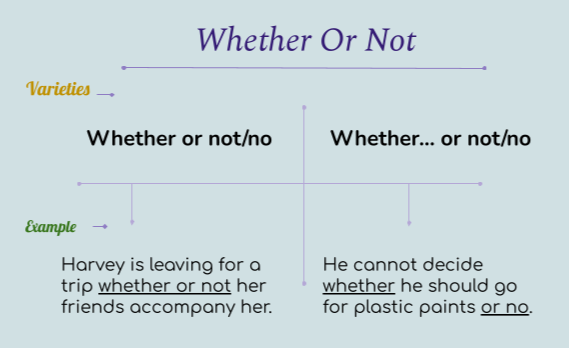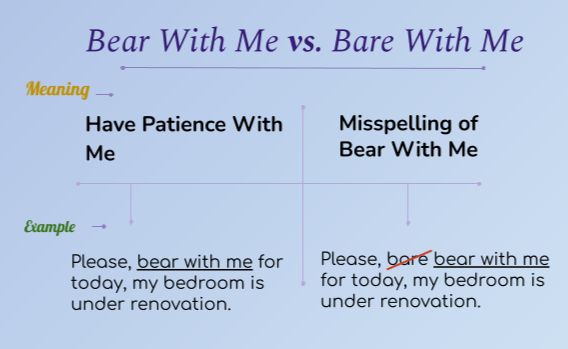How to Use "However" Effectively in Sentences
In this article, we will explore the various ways to effectively use "however" in your writing to convey contrast or opposing ideas. Understanding its different applications will enable you to elevate the quality of your written work.
What "However" Means in a Sentence?
Using the word "however" in a sentence serves as a way to show contrast or present opposing ideas. It helps us express a shift in thought or direction within our writing. You can think of it as a handy tool that allows us to introduce a new perspective or bring attention to an unexpected twist in our words.
For example, let's say you're talking about your love for ice cream. You might say, "I adore ice cream; however, I can't eat it due to my lactose intolerance."
In this case, "however" introduces the contrasting idea that even though you love ice cream, you can't indulge in it because of your lactose intolerance.
How to Use However in Sentences?
1. Using as a Connector:
Think of it as a bridge that helps you smoothly transition between ideas while adding a touch of contrast or contradiction.
Case 1: At the beginning of the Second Sentence
When using "however" as a connector, it is typically placed at the beginning of the second sentence to introduce a contrast or shift in focus.
Consider the following example:
- I enjoy going for long walks. However, I'm not too fond of running.
- He loves playing soccer. However, he has never participated in a competitive match.
- She is an excellent student. However, her test scores have been declining recently.
In this case, "however" acts as a transition word that signals a change in perspective or introduces information that contrasts with what was mentioned in the previous sentence.
Case 2: Joining Two Sentences/Clauses with a Semicolon
Alternatively, "however" can join two sentences or clauses, emphasizing their contrast. To use "however" this way, place a semicolon after the first clause, followed by "however" and a comma.
Examples
- Zara loves to travel; however, she has a fear of flying.
- He had practiced for hours; however, his performance didn't meet his expectations.
- The team worked hard to reach the finals; however, they were ultimately defeated by a stronger opponent.
In these examples, "however" is used after a semicolon to join two related sentences or clauses together. The semicolon acts as a bridge, connecting the ideas while the "however" introduces a contrasting or unexpected element to the second part of the sentence.
2. Using as an Aside
In this case, "however" acts as an adverb and helps us express contrast or opposing ideas slightly differently.
Case 3: After the Subject of the Second Sentence
Another way to use "however" is as an adverb to show contrast or opposing ideas. In this case, insert "however" after the subject of the second sentence.
Examples
- The weather forecast predicted a sunny day. Jane, however, carried an umbrella.
- The company announced a new product. The customers, however, were not impressed with its features.
- The dog was small and harmless. The cat, however, eyed it with suspicion.
In these examples, "however" is placed after the subject of the second sentence, providing additional information or introducing a contrasting idea. It adds an element of surprise or contrast to the statement.
Case 4: At the End of the Second Sentence with a Comma
Similarly, "however" can be placed at the end of the second sentence to convey a contrast. It is essential to precede "however" with a comma in this position.
Examples
- The experiment yielded promising results. The data analysis was inconclusive, however.
- She worked hard to save money for her dream vacation. The unexpected expenses drained her savings, however.
- The team had a strong start in the game. They struggled to maintain their lead in the second half, however.
In these examples, "however" is used at the end of the second sentence, preceded by a comma. This placement of "however" adds a contrasting or unexpected element to the statement, creating a shift in the reader's expectation.
3. Using as Conjunction and Adverb in Whatever Manner
When used as a conjunction, "however" emphasizes that something can happen or be done in various ways without specifying a particular manner. It implies flexibility and allows for different approaches or means.
For example, you might say, "However hard I try, I can't seem to solve this puzzle." Here, "however", suggests that, regardless of the effort, the speaker cannot solve the puzzle.
On the other hand, "however" can also function as an adverb to indicate "in whatever manner." This case emphasizes that something can be done or happen in various ways, leaving it open to interpretation.
For example, "However you decide to approach the situation, make sure to consider all the facts." Here, "however", suggests that the reader has the freedom to choose any manner or method they see fit to approach the situation, emphasizing the importance of considering all the facts.
Common Mistakes While Using "However" in Sentences
When incorporating "however" into your writing, you must be aware of common mistakes to ensure proper usage. Here are a few points to consider:
- Avoid redundant phrases
- Maintain parallel structure
- Use appropriate punctuation
- Consider sentence flow
- Proofread for clarity
Avoid redundant phrases: Do not use " however" or "however though" in sentences. Instead, choose one word to convey contrast effectively.
Maintain parallel structure: When using "however" to introduce a contrast, ensure the sentence structure remains parallel. For example, if you start with an independent clause, follow it with another independent clause.
Use appropriate punctuation: Pay attention to punctuation rules when placing "however" within a sentence. Use commas and semicolons correctly to maintain clarity and coherence.
Consider sentence flow: While "however" can enhance your writing by introducing contrast, ensure the sentence flow remains smooth. Overusing "however" can disrupt the natural rhythm of your content.
Proofread for clarity: After incorporating "however" into your writing, take the time to proofread your sentences to ensure they convey your intended meaning accurately.
Conclusion
"However" is a versatile transitional word that adds depth and contrasts your writing. By understanding its various uses, such as acting as a connector, an aside, or indicating "in whatever manner," you can effectively convey opposing ideas and create more engaging and coherent content.
Grammar
Read More
- How to Use "Therefore" in Sentences Avoiding Common Mistakes
- How to Use "Whereas" with Examples and Avoid Common Mistakes
- When and How to Use "Thus" Correctly Without Common Mistakes
- How to Use "On the Contrary" Properly with Meaning and Examples
- When and How to Use "Either/Or" with Examples and Common Mistakes to Avoid
- How to Use "On the Other Hand" Effectively without Mistakes
- How to Use "Respectively" with Example and Common Errors to Avoid
- How and When to Use "Moreover" Without Mistakes
- How to Use "Likewise" in Sentences Based on Context & When not to Use
- When & How to Use "Although" in Sentences to Avoid Mistake



